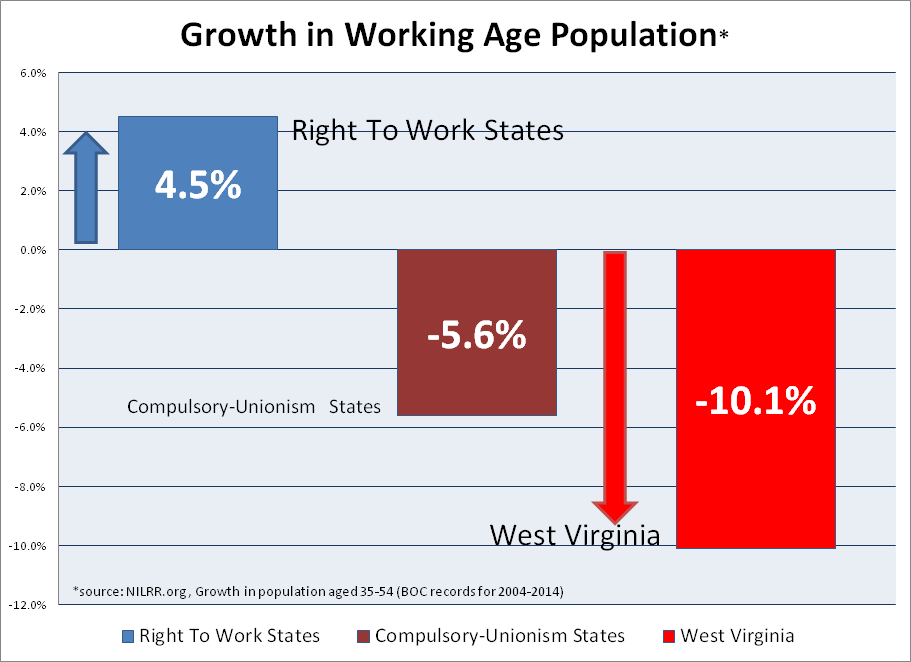RGF attacked (again) on Right to Work; Non-partisan West Virginia report further buttresses economic case for RTW
A UNM sociology professor and her Oregon-based sidekick are on the warpath against the Rio Grande Foundation and our research on “right to work.” As usual, their “research” is lacking and elicited a swift response from us.
Interestingly, given the brevity of New Mexico’s 30-day session and the attention shift to criminal justice issues, it is looking less likely that “right to work” (or many other economic reforms) will get a serious look in the 2016 Legislature. That is not the case in West Virginia where “right to work” will likely pass in a matter of weeks (making the state the 26th to do so).
This article from West Virginia sums up the arguments on “right to work” fairly well. The author cites a study by the Legislature’s Bureau of Business and Economic Research which found “RTW policy leads to long-run rates of GDP growth that are around .5 percentage point higher than non-RTW states…The study also found a 1.4 percent job rate growth in RTW states over the last two decades, compared with one percent in non-RTW states.”

The writer also noted that,
While (right to work) would be a blow to union power, it’s not a death knell. Instead, it may give rise here to “members-only agreements” where unions represent only the workers who choose to belong. The unions are under no obligation to provide any representation or services for non-union workers.

